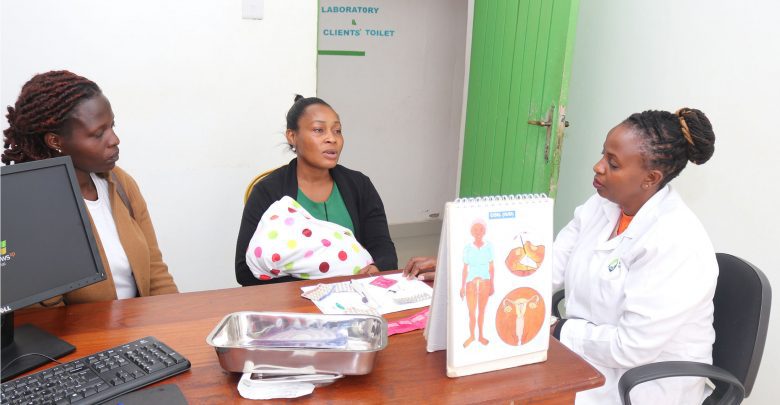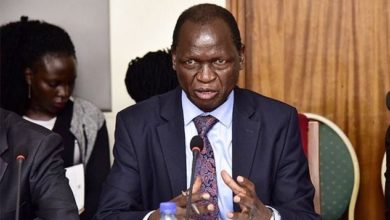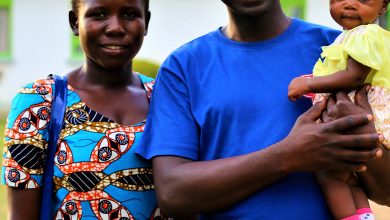
EnvironmentHealth
Getting her future back: how access to family planning is helping mothers in Uganda
While attending a medical outreach by RHU, she received quality family planning services and counseling, which helped her make informed decisions about her body and future.
By Mouryn Namawa
Bundibugyo, Uganda – Zurufa Kabo’s life changed for the worse when she fell pregnant at 15, while still in high school. She dropped out of school, was abandoned by her boyfriend, and lost the support of her family.
Kabo, 22, has been able to find small jobs so that she can take care of her own needs and that of her seven-year-old child. Her use of modern contraceptives ensures that she does not have another unintended pregnancy.
The consequences of an unintended pregnancy proved an enormous burden for the teenager. Although her parents allowed her to stay at home, they stopped supporting her financially, which meant she had to take on small jobs to earn money for herself and her baby. But help was at hand after Reproductive Health Uganda (RHU) introduced family planning services under the HARNESS program in partnership with World Wide Fund for Nature (WWF).
“Before I got pregnant, and gave birth to my child, I did not know anything about family planning,” she said.
“I came to know about family planning methods and their benefits, through the program at Harugale Health Centre II, where I went to meet with Izahura Youth group members,” she said. “I decided to go with an implant method – Implanon, that lasts for three years. It is a decision I made confidently, thanks to the information I got from the RHU medical team.”
Izahura Youth group creates awareness among local communities to save and restore the environment in Bundibugyo district, but recently the idea of embracing family planning services was introduced in order for couples to space their children, have children that are planned for, and are better to manage.
Kabo, says that she decided to go with an implant method that lasts three years. It is a decision she made confidently, thanks to the information I got from the RHU medical team.
As a result, Kabo has regained her self-confidence and her hope for her future.
“My life has improved economically and socially, because even though I did not go back to school, I have managed to find work for social, environmental, and economic empowerment, to be able to take care of my child,” she said.
When her implant needs to be renewed, she will return to the Harugale Health Centre II or call RHU toll-free line, to get more information, care, and learn about new methods of family planning.
“I have decided to use family planning. The nurse informed me of the various methods and I chose to adopt the Implanon method because it is easier to use,” she said. “After being trained on how to do self-injection of Sayana, I will be able to do it myself at home without going to the health center, and my privacy will be ensured,” she smiles.
Family planning has enabled her to focus on raising her son and doing her work. Her newfound autonomy over her body and reproduction has given her the confidence to make plans for her future.
“I feel comfortable. I can now plan my life and the future of my family. I know I will raise my son, feed him and buy him clothes without any problem because I work hard without worrying about having another baby I did not plan for,” she said.
For three months now, the HARNESS project operates in five districts: Budibugyo, Kasese, Bunyangabo, Ntoroko, and Kabalore.
Purdens Tayebwa, in charge of the RHU Kabalore branch, claims that at least 2500 men and women from 43 communities have received free family planning services, including cervical cancer testing and counseling.
In Uganda, gender-based violence and teenage pregnancy are a priority focus for the Government of Uganda and its development partners. The Demographic and Health Survey shows that Forty-three percent of Ugandan women are married by the age of 18, compared to 10% of men. Within 0.5 years of marriage, women have their first birth. The median age at first birth for women is 19.2 years. More than one-third (35%) of women give birth by age 18.
Of all births in the past five years, and current pregnancies, 54 percent were intended at the time of conception, and 46 percent were unintended. Uganda’s wanted fertility rate is 3.1, while the total fertility rate is 4.7. This suggests that Ugandan women currently have, on average, one child more than they wish to. The more children a woman has, the more likely her most recent birth was unintended.





